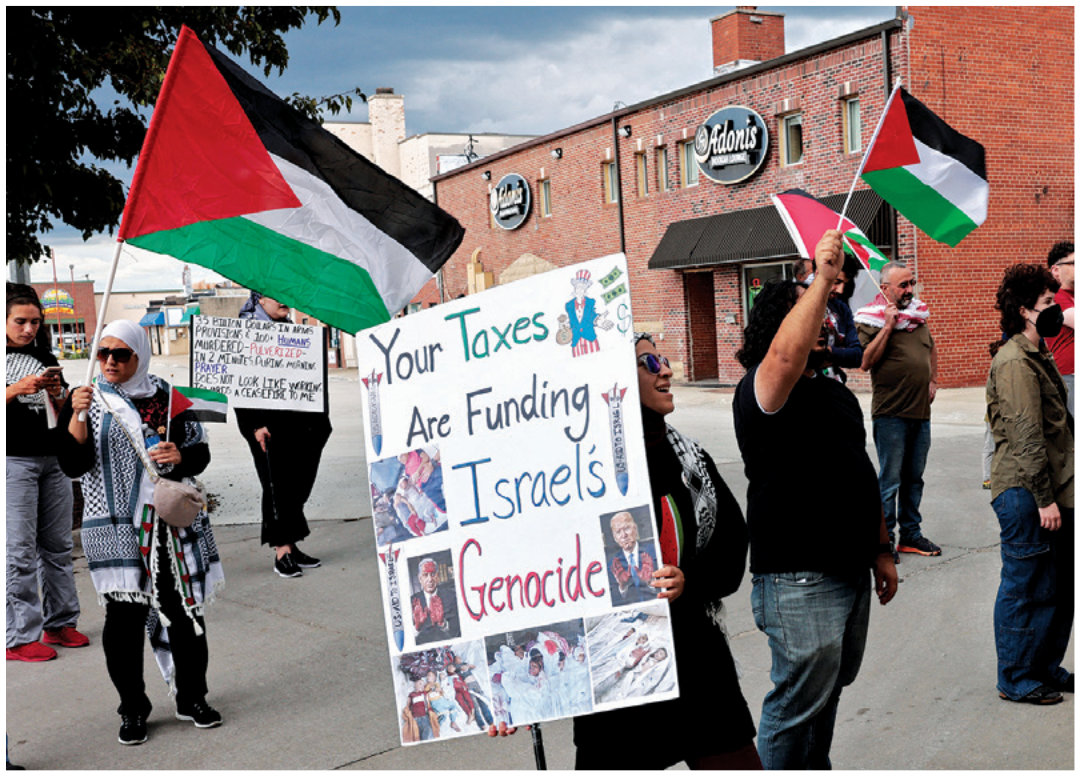BEIRUT: Lebanon’s highest Sunni religious authority, Grand Mufti Sheikh Abdel Latif Derian, has thanked “the brotherly Arab countries and friendly countries that are rushing to support and stand by Lebanon.”
Derian’s remarks in Beirut on Saturday came as Lebanese politicians and the general public found themselves divided regarding Hezbollah’s decision to open the southern front without consulting the government.
Derian said: “What Israel is doing in the villages and towns of steadfast southern Lebanon and other regions are deliberate war crimes against all Lebanese, and awareness and wisdom are required in dealing with this dangerous aggression.
FASTFACT
Cross-border fire between Israel and the Hezbollah movement has occurred almost daily since the Gaza war began, but has escalated notably over the past month.
“During the 2006 war which Israel launched against Lebanon, we managed to stay together, supported by the Arabs and the international community,” he continued. “The country survived a major disaster.
“The problems are more significant now, but solidarity is less. However, there is still compassion for Lebanon, evidenced by Arab and international visits.
“This reality calls for solidarity to elect a president and stop the repercussions of the division we are witnessing in public opinion.”
Derian’s appeal came as the Supreme Islamic Shariah Council emphasized the importance of “local and international initiatives and efforts to help Lebanon get out of the dark tunnel it is in and return to the right path.”
The council called for “national unity to stand against Israeli aggression in southern Lebanon and the Bekaa.”
The council also condemned the international community’s “silence on the most heinous crimes committed by Israel in Gaza, the occupied West Bank, and Lebanese territories.”
International efforts are focused both on containing the confrontations in southern Lebanon within their current boundaries and stopping the exchange of fire, pending the outcome of Hamas-Israel negotiations.
UN Secretary-General Antonio Guterres reiterated “the risk of the confrontations between Hezbollah and Israel escalating into a full-scale war” and emphasized “the necessity of reaching a political solution.”
The secretary-general’s spokesperson, Stephane Dujarric, expressed the UN’s concern about “the increasing intensity of fire exchanges across the Blue Line, which heightens the risk of a wide-scale war.”
Dujarric said: “Escalation can and must be avoided, and we reiterate that the danger of miscalculation leading to a sudden and wider conflagration is real. A political and diplomatic solution is the only viable way forward.”
The diplomatic pressure to avoid an escalation into full-scale war continues through US-French coordination.
One report suggests that German-led negotiations over a settlement related to southern Lebanon are also progressing, with the German side advocating stepping back from the borders, pending the end of diplomatic negotiations regarding the Gaza Strip.
Hezbollah MP Hassan Fadlallah clarified his party’s position on the efforts to enforce a ceasefire in the Gaza Strip on Saturday.
He said: “When Israeli aggression on the Gaza Strip stops, the supporting fronts will stop. Our front in Lebanon is a supporting one to pressure the enemy’s army to stop this aggression.”
Hezbollah’s new stance coincided with relative calm on the southern front. The ongoing mutual exchange of fire between Hezbollah and the Israeli army significantly decreased on Saturday after significant escalation over the previous two days.
MP Fadlallah emphasized that “the day following the end of aggression against Lebanon (will be) a Lebanese day par excellence.”
He asserted that the decisions “made on this day (will be) solely Lebanese, created by the people of Lebanon and those involved in the conflict from official institutions and the resistance under the roof of protecting sovereignty.”
This, he continued, will prevent Israel from attaining in politics what it failed to achieve through “war, combat, bombings, destruction, and assassinations.”
Fadlallah also said that “the exhaustion of the Israeli army and its inability to achieve its goals” would stop the war.
“We are facing a new phase,” he said, adding that Israel was finding it difficult to sustain fighting across Gaza because resistance in Palestine has lasted for nine months.
Maj. Gen. Israel Ziv, former head of operations for the Israeli army, warned that “increased military action in the north is the wrong tactic unless we want to wage war.”
He added: “Waging war in Lebanon would lead to a confrontation with Iran. This is the worst time to open multiple fronts.”
Hezbollah said it executed an aerial attack with a squadron of assault drones on an artillery site belonging to the 403rd Battalion of the 91st Division in Beit Hillel on Saturday morning, causing fires at the site in response to “Israeli attacks on southern resilient villages, safe homes, and civilians on Friday.”
The Israeli army claimed that it had intercepted an aerial target from Lebanon in the Galilee, and that two targets had fallen in “an open area” in Beit Hillel.
The Israeli army also launched barrages of fire from its positions facing the town of Aita Al-Shaab toward Birkat Risha and the outskirts of the town of Ramyah.































